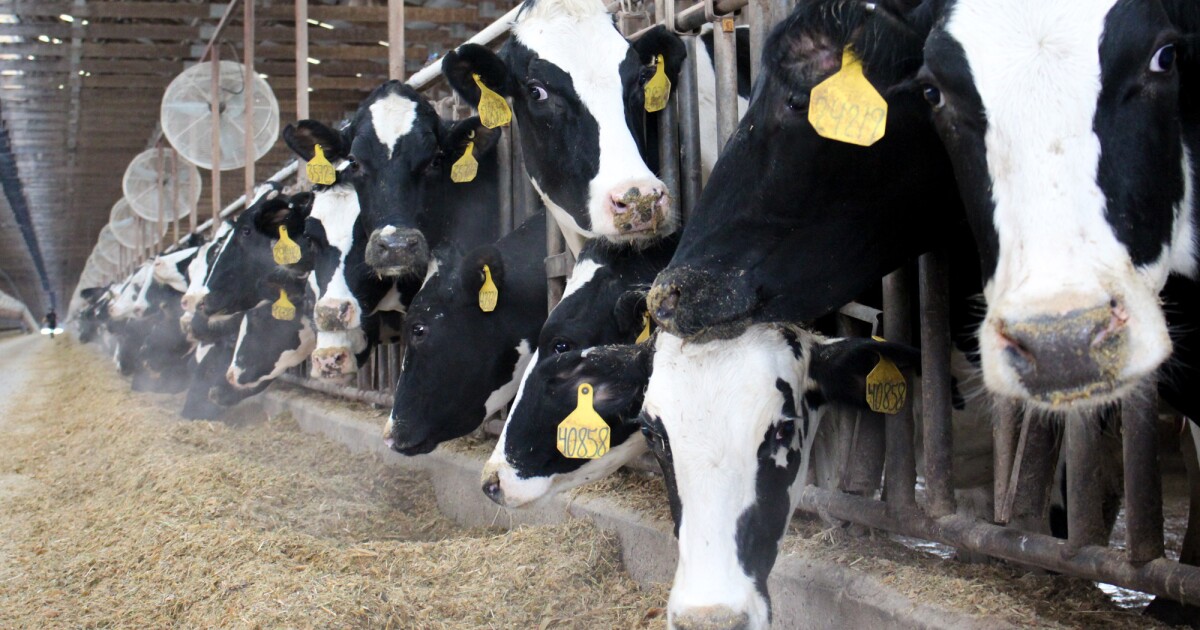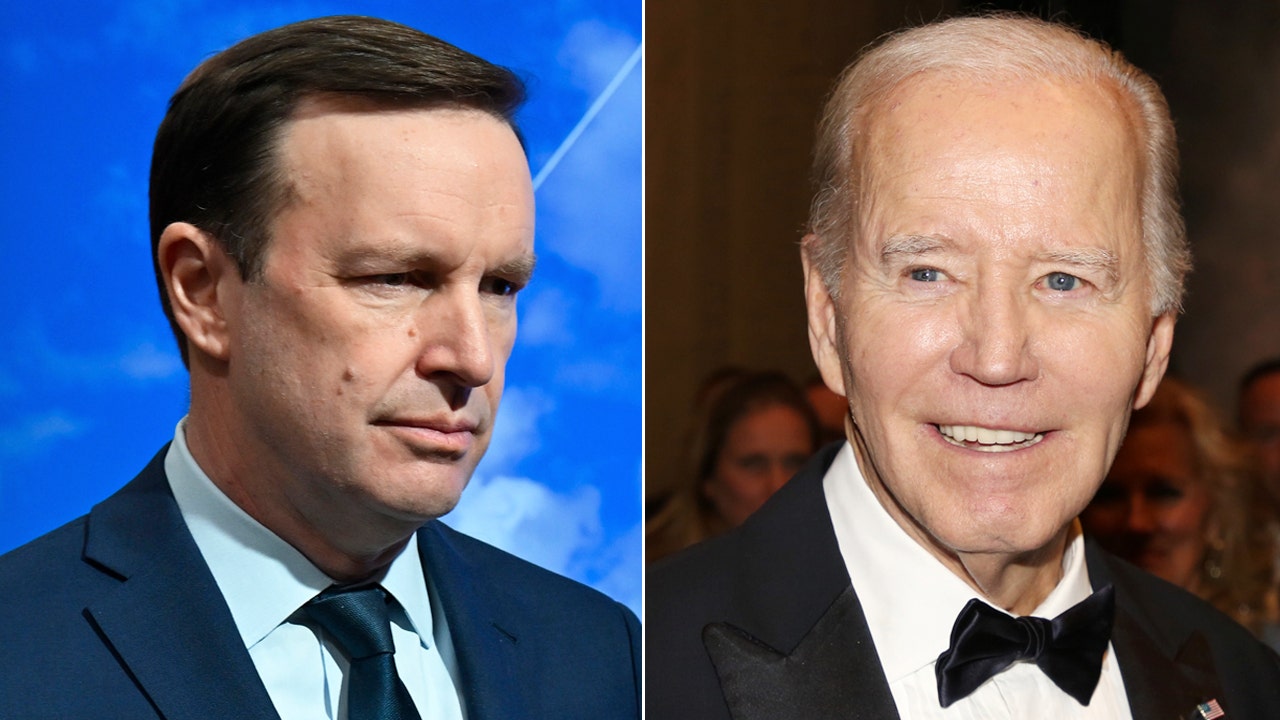South Dakota
SD lawmakers endorse SAVE Act to protect exports

Rep. Dusty Johnson and Sen. John Thune are backing a bipartisan bill called the Safeguarding American Value-Added Exports Act, or SAVE Act, which aims to protect American exports to Europe.
The European Union has a quality policy that gives some products geographical indications. Certain products that have been granted a geographical indication can only be sold under their common name if they were produced in their region of origin.
For example, sparkling wine sold in the EU can only be called “champagne” if was made in a specific region of France. This policy applies the rule to other products, like feta cheese, which can only be called “feta” if it was produced in Greece or Cyprus.
The European Commission’s website says that geographical indications promote unique characteristics linked to the products’ geographical origin and help European producers market their products.
Johnson said this policy is unfair.
“Europe has a lot of pride, a lot of ownership over the names of the foods that were invented there, in some cases over a thousand years ago,” he said.
If passed, the SAVE Act would instruct the U.S. Department of Agriculture and U.S. trade representatives to establish a list of common names and then negotiate with the EU to keep these names from having geographical indications. Congress would review a report about the negotiations every two years.
“Obviously, when you enter in into any international trade deal, you’re not going to get everything you want, but in general the United States secures a vast majority of the things that we ask for in these international trade deals,” Johnson said. “And so, you know, instructing the U.S. trade representative to go get these wins for us makes it quite likely that we will get those wins.”
Marvin Post is a dairy farmer and the chair of South Dakota Dairy Producers. He said the EU’s geographical indications have not affected him yet, but they could in the future.
“We need to take a stand and be offensive, be on the offense, not just wait for something to happen and then try to reverse it,” he said.
Post added it is only fair for everyone to use common names.
“The SAVE Act is an attempt to continue to have exports on a level playing field,” he said.
Johnson said this act will ensure that South Dakota’s products can be sold under their common name worldwide.
“Over the course of the last 10 years, South Dakota has been one of the fastest growing dairy states in the country year after year,” he said. “We want to make sure that markets across the world are open to those South Dakota exports.”
Johnson expects this act to be passed into law due its bipartisan and bicameral support.
“On agricultural issues, bipartisanship is not rare,” Johnson said. “Both Democrats and Republicans eat and there are certainly Democrat and Republican farmers and ranchers. We have a tendency to work together on the ag committee. This is just one more example of that.”

South Dakota
Minnesota man killed in Sioux Falls on-ramp crash identified

SIOUX FALLS — A Minnesota man killed after a crash on a Sioux Falls Interstate on-ramp has been identified by authorities.
The crash occurred shortly after 6 p.m. Sunday, May 11, on the 12th Street on-ramp to Interstate 29 northbound on the west side of Sioux Falls.
The South Dakota Highway Patrol said 44-year-old Derek Berry, of Zumbrota, Minnesota, was operating a Suzuki motorcycle when he entered the on-ramp to the northbound lanes of Interstate 29 at 12th Street, which features a sharp curve.
Troopers say Berry lost control of his bike on the curve and struck concrete barriers on both the east and west sides of the on-ramp, causing him to separate from his motorcycle.
Berry was taken to a Sioux Falls hospital where he died of his injuries.
No other vehicles were involved in the crash, though traffic was impacted for some time.
The South Dakota Highway Patrol continues to investigate the crash.
A South Dakota native, Hunter joined Forum Communications as a reporter for the Mitchell (S.D.) Republic in June 2021 and now works as a digital reporter for Forum News Service.
South Dakota
‘Doing well’: Union County man missing for more than 5 years found safe

UNION COUNTY, S.C. (FOX Carolina) – The Union County Sheriff’s Office said a man who has been missing for more than five years was found safe in another state.
On April 4, 2025, the Union County Sheriff’s Office worked with the Spartanburg County Sheriff’s Office to develop new possible investigation resources to located David Collin Barber.
Barber was reported missing in December 2019.
On May 13, 2025, Deputies said they received a tip that the man David Collin Barber had been on the west coast since 2019. They later learned he was now in South Dakota.
Law enforcement agencies in that area located Barber who stated he was ‘doing well.’
“We are thankful for the efforts of those who assisted in the search for Collin and the tips that came in that lead to this positive outcome for his loved ones,” said Sheriff Jeff Bailey in a release.
Copyright 2025 WHNS. All rights reserved.
South Dakota
Obituary for David Allan Clauson at Miller Funeral Home & On-Site Crematory

-

 Austin, TX5 days ago
Austin, TX5 days agoBest Austin Salads – 15 Food Places For Good Greens!
-

 Technology1 week ago
Technology1 week agoBe careful what you read about an Elden Ring movie
-

 Culture1 week ago
Culture1 week agoPulitzer Prizes 2025: A Guide to the Winning Books and Finalists
-

 Technology7 days ago
Technology7 days agoNetflix is removing Black Mirror: Bandersnatch
-

 Education1 week ago
Education1 week agoUniversity of Michigan President, Santa Ono, Set to Lead University of Florida
-

 World7 days ago
World7 days agoThe Take: Can India and Pakistan avoid a fourth war over Kashmir?
-

 News7 days ago
News7 days agoReincarnated by A.I., Arizona Man Forgives His Killer at Sentencing
-

 News1 week ago
News1 week agoJefferson Griffin Concedes Defeat in N.C. Supreme Court Race




















